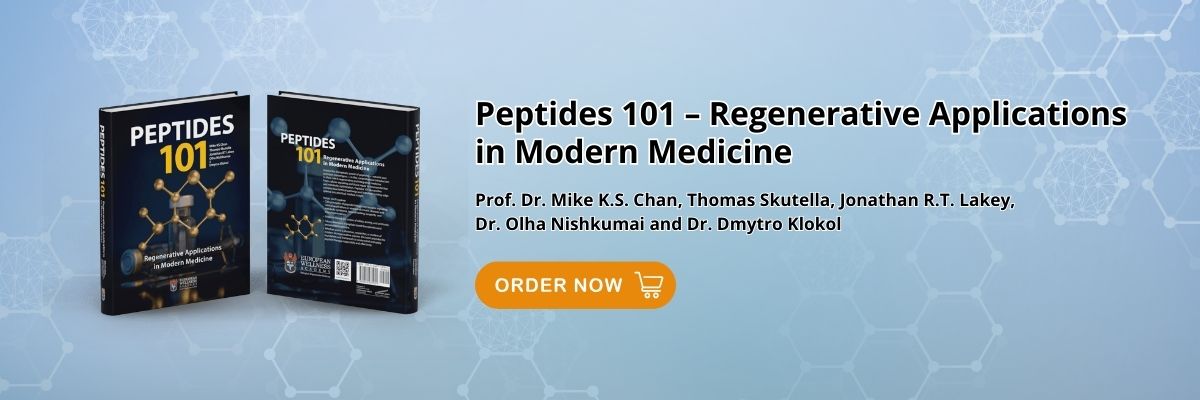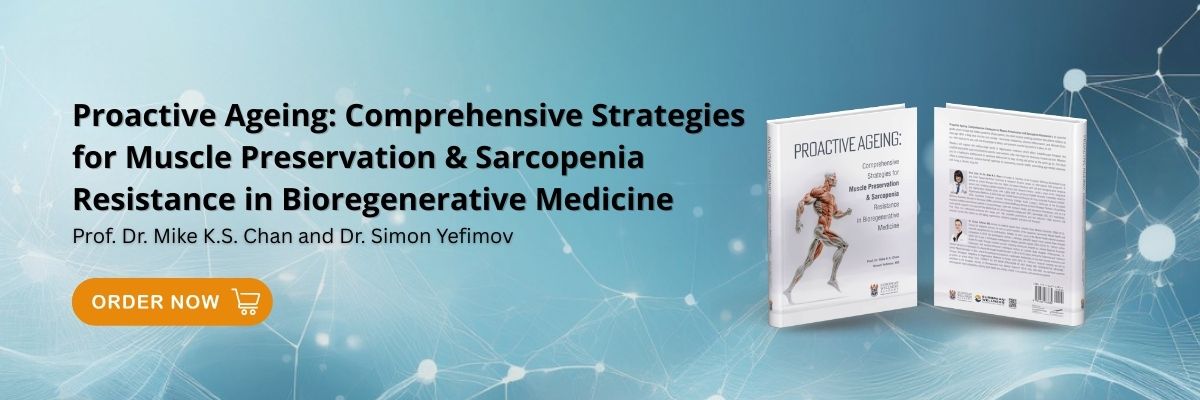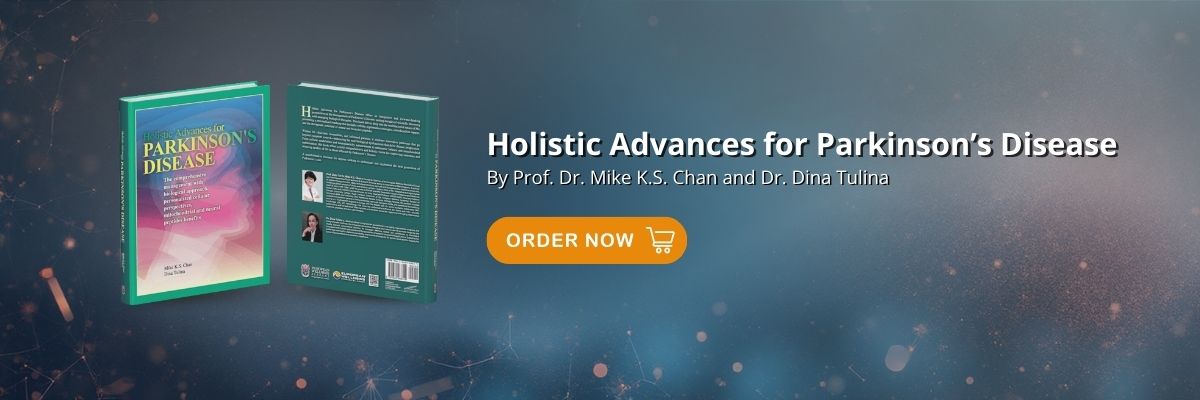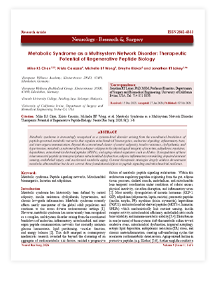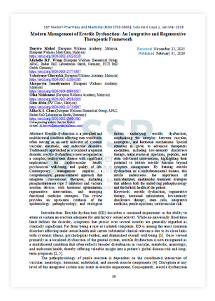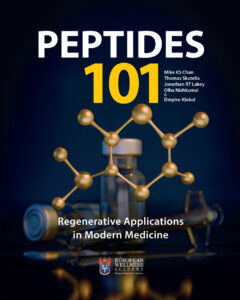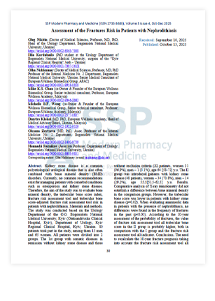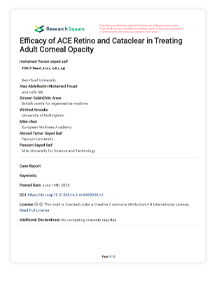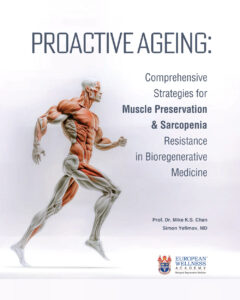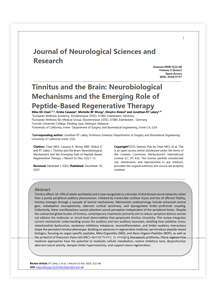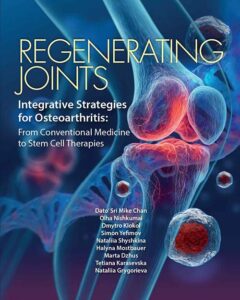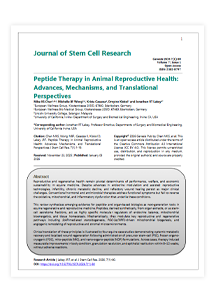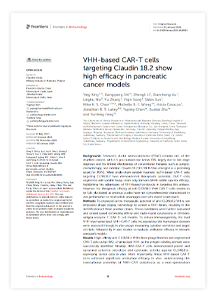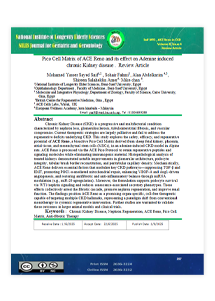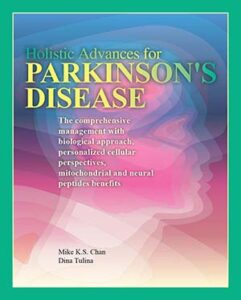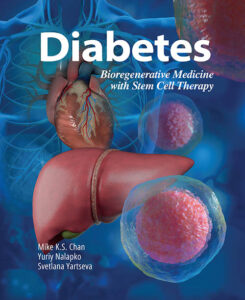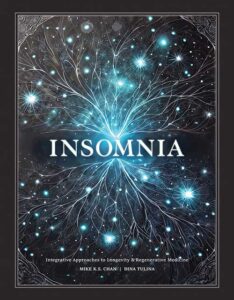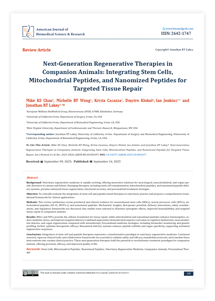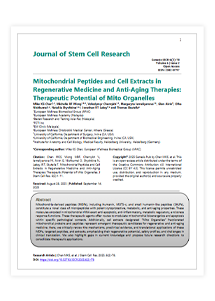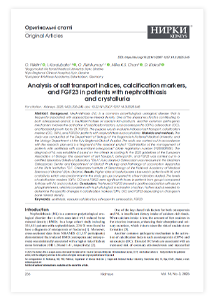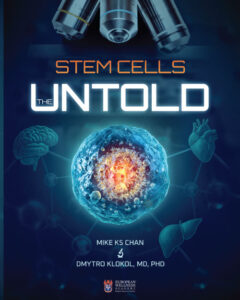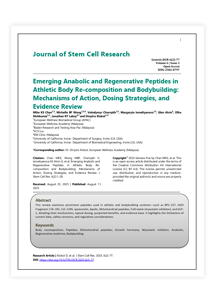Authors: Prof. Dr. Mike K.S. Chan, Krista Casazza, Prof. Dr. Michelle B.F. Wong, Dr. Dmytro Klokol and Jonathan R.T. Lakey
Publisher: Neurology - Research & Surgery; 9(1), 2026
Publisher's URL: TBA
will be available post-publishing date
MORE PUBLICATIONS:
https://european-wellness.eu/publications/
About the Article:
Erectile dysfunction (ED) is a common male health condition with complex multifactorial causes, including vascular, neurological, endocrine, and psychosocial contributors. Traditional therapies like phosphodiesterase type 5 inhibitors remain first‑line, but they don’t fully address underlying tissue, nerve, or metabolic dysfunction.
This review presents a comprehensive management framework that blends conventional diagnostics and pharmacotherapy with emerging regenerative and integrative strategies, targeting the biological roots of ED and expanding therapeutic possibilities beyond symptom control.
Key Themes Covered:
✔️ Detailed overview of ED pathophysiology and clinical assessment
✔️ Conventional medical treatments and personalized management principles
✔️ Regenerative medicine approaches, including cell‑based and peptide‑based therapeutics
✔️ Lifestyle, metabolic, and psychosocial considerations in ED care
✔️ A future‑forward framework integrating traditional care with regenerative innovation
By uniting established evidence and next‑generation therapeutic concepts, this article highlights a holistic path forward for improving erectile function and overall male sexual health.
Modern Management of Erectile Dysfunction: An Integrative and Regenerative Therapeutic Framework
by
Dr. Dmytro Klokol, Prof. Dr. Michelle B.F. Wong, Dr. Volodymyr Chernykh, Dr. Margaryta Yemeliyanova, Dr. Olha Nishkumay, Dr. Glen Alvin and Prof. Dr. Mike K.S. Chan
SSP Modern Pharmacy & Medicine; 6(1), 2026
https://doi.org/10.53933/7z0cx674
MORE PUBLICATIONS:
https://european-wellness.eu/publications/
Authors: Prof. Dr. Mike K.S. Chan, Thomas Skutella, Jonathan R.T. Lakey, Dr. Olha Nishkumai and Dr. Dmytro Klokol
Published by: EUROPEAN WELLNESS ACADEMY – Medical Research
Medical Research: ISBN: 9781662971921, eISBN: 9781662971938
Peptides 101: Regenerative Applications in Modern Medicine provides a foundational overview of peptide biology and their expanding therapeutic roles in regenerative and functional medicine. The book reviews peptide structure, synthesis, and signaling pathways, with emphasis on their applications in tissue repair, immune modulation, neuroprotection, and metabolic regulation. Integrating current research with clinical perspectives, it highlights safety profiles, evidence-based protocols, and emerging trends in peptide therapeutics. Designed for clinicians, biomedical researchers, and students, this text bridges basic science and translational medicine to illuminate the regenerative potential of peptide-based interventions.
Unlock the therapeutic power of peptides—nature’s own precision messengers—in this comprehensive introduction to their role in regenerative and integrative medicine. From cellular signaling and tissue repair to neuroprotection and metabolic optimization, Peptides 101 demystifies complex biochemical pathways and translates cutting-edge science into practical medical insight.
Inside, you’ll explore:
- Core principles of peptide biology and receptor signaling; Clinical applications in reversal of chronic diseases and metabolic syndrome, wound healing, longevity and neuroregeneration;
- Evidence-based discussion of safety, dosing, and protocols;
- Future directions in peptide-based therapeutics and personalized medicine.
- Whether you’re a physician, researcher, or student of modern bioregenerative science, this book provides the foundation and framework to understand and apply peptide therapy responsibly and effectively.
Prof. Dato’ Sri Dr. Mike K.S. Chan, Researcher, Author, and Educator, Founder and Chairman of the European Wellness Biomedical Group; Senior Technical Consultant at EWBG; Head of Scientific committee of preventive, regenerative and anti-aging medicine and Asian Chairman (ESAAM); Adjunct Professor of Lincoln University College (Malaysia); Associate Professor of AASCP, USA (American Academy of Stem Cell Physicians), Chairman for A4M, USA (American Academy of Anti-Aging Medicine) for Thailand/Asia, Japan’s Regenerative Medical Association MMJ (Multi-Dimensional Holistic Medical Team Japan) and co-Founder of FCTI Precursor Stem Cells (Europe), Author of over 70 books and over 150 publications, has experience of 45 over years in Stem cells Research in Germany, Switzerland, European Union, Soviets, China, Mexico, USA, Japan, Middle East since early 80’s, presenter for over 10000 presentations and scientific lectures globally at most major conferences of the World on anti-aging and precision medicine. He is also a pioneer in Regenerative Medicine and Cellular Therapies in a big way in the 80’s into Asia Pacific, the Middle East and Australia.
Thomas Skutella, MD, PostDoc (Max Planck Institute for Psychiatry, Munich, Germany), Full Professor at Heidelberg University, former group leader in the Neuroscience Research Center (Charite Berlin, Germany), director of the Center for Regenerative Medicine (Tübingen, Germany), Head of the department of Neuroanatomy in the Institute for Anatomy and Cell Biology (Heidelberg, Germany), Group for Regeneration and Reprogramming, Medical Faculty, Institute for Anatomy and Cell Biology, Heidelberg University (Germany).
Jonathan R.T. Lakey, B.Sc., M.Sc., Ph.D. (University of Alberta at Edmonton, Canada), Professor Emeritus, Department of Surgery, University of California Irvine (CA, USA); Department of Biomedical Engineering, University of California Irvine (CA, USA), Director of Research at the Clinical Islet Program in the Department of Surgery at the University of California, Irvine (CA, USA), Outstanding Leadership in Alberta Science Award from the Alberta Science and Technology Leadership Foundation, the Outstanding Achievement Award from the Canadian Diabetes Association, and Royal College of Physicians and Surgeons.
Olha Nishkumai, MD, PhD, Professor, Doctor of Medical Sciences, Board Certified Specialist Cardiologist, Rheumatologist, and Internal Medicine specialist; Full Professor at the Department of Internal Medicine No. 2 at Bogomolets National Medical University (UA); Medical Consultant at the European Wellness Biomedical Group.
Dmytro Klokol, MD, Specialist in General Surgery (Board Certified, MoH UA), PhD (Emergency and Reconstructive Surgery), GCP (Malaysia, USA), PostDoc (Regenerative Medicine, NL, EU); Certified expert in Interventional procedures in Regenerative Medicine and chronic pain management (Spain, EU); Certified Educator at International Accreditation Organization (IAO, USA); HRDCorp certified educator and trainer (Malaysia); International Board for Anti-aging and Regenerative Medicine (IBARM, USA) certifying academic board member.
European Wellness researchers and collaborators have just published an important new study in SSP Modern Pharmacy and Medicine – revealing a hidden link between kidney stone disease and bone health that standard bone density tests might miss!
Here's What It's About:
✅ The research team studied 80 patients to understand how kidney stone disease (nephrolithiasis) affects fracture risk
✅ Standard bone mineral density (BMD) tests showed no difference between patients with and without kidney stones
✅ However, the Trabecular Bone Score (TBS) – which measures bone quality and microarchitecture – was significantly lower in kidney stone patients
✅ When TBS was factored into the 10-year fracture risk calculation, patients with kidney stones showed a notably higher risk of fractures
This means traditional bone density scans alone may not tell the full story for people with kidney stone disease.
💡 Why This Matters:
Kidney disease can disrupt vitamin D metabolism and trigger secondary hyperparathyroidism – a double threat that affects both stone formation and bone integrity. By incorporating TBS into fracture risk assessments, clinicians can identify at-risk patients earlier and begin preventive therapy sooner – potentially avoiding life-altering fractures down the road.
Assessment of the Fractures Risk in Patients with Nephrolithiasis
by
Oleg Nikitin, Illia Kordubailo, Dr. Olha Nishkumay. Prof. Dr. Mike K.S. Chan, Prof. Dr. Michelle B.F. Wong, Dr. Dmytro Klokol, Oksana Zaytseva and Hennadii Reznikov
SSP Modern Pharmacy & Medicine; 5(4), 2025
https://doi.org/10.53933/0waq5n36
MORE PUBLICATIONS:
https://european-wellness.eu/publications/
Here's What It's About:
This case report follows a 27-year-old patient with severe corneal opacity treated over 90 days using ACE Retino (sublingual and topical peptides) and Cataclear (bioactive eye drops).
Key observations include:
- 92% improvement in corneal clarity
- Significant visual acuity gains
- Reduced stromal edema
- And marked improvements in inflammatory and oxidative biomarkers – all without surgical intervention.
💡 Why This Matters:
Corneal opacity affects millions globally and often requires surgery with associated risks. This preliminary case suggests peptide-based therapies targeting inflammation, oxidative stress, and fibrosis may offer a promising non-invasive alternative – though larger controlled trials are needed.
Efficacy of ACE Retino and Cataclear in Treating Adult Corneal Opacity
by
Mohamed Yasser Sayed Saif, Alaa Abdelkarim Mohamed Fouad, Shireen SalahEldin Amer, Winfred Amoako, Prof. Dr. Mike K.S. Chan, Ahmed Tamer Sayed Saif and Passant Sayed Saif
Research Square; 2025
https://doi.org/10.21203/rs.3.rs-6683358/v1
MORE PUBLICATIONS:
https://european-wellness.eu/publications/
Authors: Prof. Dr. Mike K.S. Chan and Dr. Simon Yefimov
Published by: EUROPEAN WELLNESS ACADEMY – Medical Research
Medical Research: ISBN: 9781662963834, eISBN: 9781662963841
Proactive Ageing: Comprehensive Strategies for Muscle Preservation and Sarcopenia Resistance is an essential guide which reveals the hidden epidemic of sarcopenia, the silent muscle-wasting condition that affects millions as they age. With a deep dive into the root causes—hormonal imbalances, chronic inflammation, and lifestyle choices—this book arms you with the knowledge to detect and prevent muscle loss before it takes its toll.
Readers will explore the cutting-edge world of regenerative medicine which offers breakthrough therapies like peptide treatments and mitochondria-specific interventions offer new hope for reversing muscle decline. Whether you’re a healthcare professional or someone determined to stay strong and active as the years go by, this book offers a comprehensive, science-backed roadmap to maintaining muscle health, preventing age-related diseases, and living a vibrant, long life.
Prof. Dato’ Sri Dr. Mike K.S. Chan is Founder & Chairman of the European Wellness Biomedical Group and Chief Researcher/Chief Technical & Research Director across its international R&D programs. A pioneer of cellular therapy since the 1980s, he helped introduce stem cell and bioregenerative medicine across Asia, building a global network of clinics and research centers—today a chain of 40+ integrative and regenerative medical clinics with 1,000+ staff. He serves as ESAAM Scientific Committee Head for Regenerative Medicine & Stem Cells and ESAAM Chairman/Director for Asia; Associate Professor (AASCP, USA); Associate Professor (Lincoln University College, Kuala Lumpur); Chairman of the European Wellness Academy; Senator of Germany’s BWA; and Honorary Chief Healthcare Advisor to Swiss Strategic Partners. His portfolio includes multiple international patents in immunotherapy, stem cell transport media, and parenteral formulations, and he is a multi-award recipient in Europe and the Middle East. An active academic collaborator (MIT, Cambridge, USC, UCI, Heidelberg), Prof. Chan has authored/co-authored 60+ books and 140+ scientific publications, and has delivered 1000+ lectures and seminars across 60+ regions on anti-aging, regenerative medicine, peptides, and stem cell therapies..
Dr. Simon Yefimov MD earned his medical degree from Luhansk State Medical University (2006–2012). During his academic journey, he was an active member of the Academic Community Mental Health and received recognition for his contributions. Notably, he won a prize at the Mental Health national academic competition in 2010. His qualifications include a radiology specialist degree from Luhansk State Hospital (2012–2014) and a radiological investigations medical specialist degree (2013–2014). Dr. Yefimov further honed his skills through practical courses, including ultrasound research at Luhansk Regional Oncologic Dispensary and contrast-enhanced radiological studies at Luhansk State Hospital. Professionally, Dr. Yefimov served as a radiologist at Luhansk Municipal Hospital Number 4 (2014–2015) before joining the Diagnostic and Treatment Centre “Meddiagnostika” in Kiev, where he continues to practice as a radiologist. Additionally, he has been actively involved in Cell Therapy, Biological, Integrative & Regenerative Medicine in Europe since 2016. Dr. Yefimov’s research interests led him to co-author an article titled “CELL THERAPY AS THE MAIN STRATAGEM OF ANTI-AGING AND REGENERATIVE MEDICINE,” published in the European Journal of Pharmaceutical And Medical Research (2019, 6(6), 295–299). His technical expertise encompasses fixed radiography systems (both digital and analog), mobile x-ray systems, and ultrasound systems.
European Wellness researchers and collaborators have just published a comprehensive review in the Journal of Neurological Sciences and Research – exploring how tinnitus is now understood as a complex brain network disorder, and how peptide-based regenerative therapies may offer a promising new path forward!
Here's the breakthrough:
Tinnitus affects 10 – 15% of adults globally – yet current treatments only manage symptoms. This paper digs into the real culprits:
✅ Cochlear injury sparking maladaptive brain rewiring
✅ Oxidative stress, mitochondrial dysfunction, and neuroinflammation keeping the "phantom sound" alive
✅ Limbic–auditory network disruptions fueling emotional distress
The potential solution?
Peptide-based biologics – including Mito-Organelles (MO), Nano Organo-Peptides (NOP), and Precursor Stem Cell–derived factors – that can:
✅ Restore cellular energy and calm hyperactive neurons
✅ Rebalance brain circuits and reduce aberrant neural "noise"
✅ Support neuro-regeneration at the source
Tinnitus and the Brain: Neurobiological Mechanisms and the Emerging Role of Peptide-Based Regenerative Therapy
by
Prof. Dr. Mike K.S. Chan, Krista Casazza, Prof. Dr. Michelle B.F. Wong, Dr. Dmytro Klokol and Jonathan R.T. Lakey
Journal of Neurological Sciences and Research; 5(2), 2025
http://doi.org/10.52793/JNSR.2025.5(2)-48
MORE PUBLICATIONS:
https://european-wellness.eu/publications/
Authors: Prof. Dr. Mike K.S. Chan, Dr. Olha Nishkumai, Dr. Dmytro Klokol, Dr. Simon Yefimov, Dr. Nataliia Shyshkina, Dr. Halyna Mostbauer, Dr. Marta Dzhus, Dr. Tatiana Karasevska and Dr. Nataliia Grygorieva
Published by: EUROPEAN WELLNESS ACADEMY – Medical Research
Medical Research: ISBN: 9786176321309
Osteoarthritis (OA), once viewed as an inevitable consequence of aging and joint “wear and tear,” is now being redefined by rapid advances in our understanding of inflammation, cartilage biology, and regenerative medicine. OA is no longer merely a condition to be managed with symptom relief — it is becoming a target for true biological intervention.
Our book presents a comprehensive and timely exploration of the evolving landscape in OA treatment. This book brings together the best of two worlds: evidence-based conventional medicine and the emerging promise of bioregenerative and cellular therapies.
In these pages, readers will find an in-depth analysis of the multifactorial nature of osteoarthritis — from metabolic and mechanical contributors to molecular and immunologic underpinnings. The chapters traverse the full spectrum of interventions, including pharmacologic management, physical rehabilitation, nutraceuticals, targeted biologicals, and cutting-edge cell-based approaches such as stem cell therapy and tissue engineering.
This integrative approach reflects a necessary paradigm shift. The complexity of OA requires more than a one-size-fits-all solution. By combining the wisdom of established clinical practice with the in-novation of regenerative strategies, this volume charts a path toward not just pain control, but true joint preservation and restoration.
As researchers, physicians, and patients continue to seek treatments that go beyond masking symptoms to addressing root causes, regenerating joints serves as both a guide and a call to action. It invites clinicians to expand their therapeutic arsenal and researchers to push the boundaries of what is possible in joint regeneration.
May this book inspire collaboration, curiosity, and continued progress in our shared goal: restoring mobility, function, and quality of life for those affected by osteoarthritis.
About the Article:
Reproductive health is critical to the welfare, performance, and sustainability of animal populations, from companion animals to livestock and equines. Traditional reproductive management strategies often focus on hormonal modulation or assisted reproductive technologies, which can improve breeding efficiency but may not address the underlying cellular, endocrine, and metabolic dysfunctions that contribute to infertility and sub‑fertility in animals.
This comprehensive review synthesizes the latest evidence on peptide‑based therapies and organ‑derived biologics as next‑generation tools in animal reproductive care. Peptide therapeutics, whether synthetic, stem‑cell secretome‑derived, or organ extract‑based offer targeted modulation of:
- Endocrine balance and steroidogenesis
- Mitochondrial bioenergetics and oxidative homeostasis
- Angiogenesis and tissue repair by modulating key reproductive and regenerative pathways
Peptide Therapy in Animal Reproductive Health: Advances, Mechanisms, and Translational Perspectives
by
Prof. Dr. Mike K.S. Chan, Prof. Dr. Michelle B.F. Wong, Krista Casazza, Dr. Dmytro Klokol and Jonathan R.T. Lakey
Journal of Stem Cell Research; 7(1), 2025
https://doi.org/10.52793/JSCR.2026.7(1)-80
MORE PUBLICATIONS:
https://european-wellness.eu/publications/
About the Article:
Pancreatic ductal adenocarcinoma (PDAC) remains one of the deadliest cancers worldwide, with survival rates below 10% and few effective treatment options. Claudin 18.2 (CLDN18.2) has emerged as a promising tumor‑specific target for immunotherapy.
This article reports on engineered VHH‑based CAR‑T cells, using a single‑domain antibody (VHH) as the antigen‑binding domain that demonstrate potent anti‑tumor activity against CLDN18.2‑expressing pancreatic cancer in preclinical models. These next‑generation constructs show strong cytokine responses and sustained cytotoxicity, highlighting their potential to overcome limitations of traditional scFv‑based CAR‑T designs.
Unlike traditional CAR-T constructs, these VHH-based versions, utilizing single-domain antibodies, offer enhanced stability, reduced immunogenicity, and potent cytotoxic activity. The results show:
- Sustained cytokine release
- Effective tumor eradication in vitro and in vivo
- Promising safety and specificity profiles
This study adds to the growing body of work demonstrating the potential of next-generation CAR-T cell therapies for solid tumors like pancreatic cancer.
VHH-based CAR-T cells targeting Claudin 18.2 show high efficacy in pancreatic cancer models
by
Ying Xing, Gangqiang Shi, Zhengli Li, Xiancheng Liu, Yu Zhang, Yiqin Song, Shilin Sun, Yuping Chen, Xuekai Zhu, Prof. Dr. Mike K.S. Chan, Prof. Dr. Michelle B.F. Wong, Thomas Skutella, Krista Casazza, Jonathan R.T. Lakey and Yunfeng Feng
Frontiers in Immunology; T Cell Biology (16), 2025
https://doi.org/10.3389/fimmu.2025.1638585
MORE PUBLICATIONS:
https://european-wellness.eu/publications/
About the Article:
Chronic Kidney Disease (CKD) is a progressive condition marked by nephron loss, fibrosis, inflammation, and impaired renal function. This review explores the Pico Cell Matrix of ACE Reno, a bioactive regenerative matrix derived from kidney, placental, atrial tissues, and mesenchymal stem cells (MSCs) and its potential to halt and reverse CKD pathology in an adenine‑induced animal model.
Key Themes Include:
- Organ‑specific regenerative potential: Pico Cell Matrix delivers peptides and signaling molecules that support nephron regeneration, organ repair, and anti‑fibrotic activity.
- Improved kidney structure and function: Treated kidneys showed restored glomerular architecture, enhanced podocyte integrity, and increased capillary density.
- Molecular mechanisms: ACE Reno modulated key pathways, suppressing TGF‑β and epithelial–mesenchymal transition, promoting mitochondrial repair via PGC‑1α, supporting angiogenesis (VEGF‑A/Ang1), and rebalancing antifibrotic and anti‑inflammatory signals such as miR‑29.
- Potential paradigm shift: These findings position ACE Reno’s Pico Cell Matrix as a promising organ‑specific, cell‑free regenerative intervention that goes beyond conventional palliative care.
Pico Cell Matrix of ACE Reno and its effect on Adenine induced chronic Kidney disease
by
Mohamed Yasser Sayed Saif, Sohair Fahmi, Alaa Abdelkarim, Shireen Salaheldin Amer and Prof. Dr. Mike K.S. Chan
NILES Journal for Geriatric and Gerontology; 8(4), 2025
https://doi.org/10.21608/niles.2025.393926.1123
MORE PUBLICATIONS:
https://european-wellness.eu/publications/
Authors: Prof. Dr. Mike K.S. Chan, Leigh Steinberg and Dr. Dina Tulina
Published by: EUROPEAN WELLNESS ACADEMY – Medical Research
Medical Research: ISBN: 9781662970504, eISBN: 9781662970511
Concussion – The Hidden Trauma in contact Sports and the NFL - Concussion and mild traumatic brain injury (mTBI) represent a spectrum of neurological injuries that have gained unprecedented attention in recent decades, particularly within the realm of sports medicine. The recognition and understanding of concussion symptoms have evolved dramatically, driven largely by high-profile cases in professional sports, especially the National Football League (NFL), and mounting scientific evidence about the serious nature of these seemingly "mild" injuries.
The symptomatology of concussion is complex and multifaceted, encompassing physical, cognitive, emotional, and sleep-related manifestations that can vary significantly between individuals and across different contexts. In sports settings, particularly in contact sports like American football, the presentation and recognition of these symptoms carry unique challenges and implications that extend far beyond the playing field.
This book provides a comprehensive examination of concussion symptoms, with particular emphasis on sports-related concussion and the landmark developments in understanding that have emerged from NFL research, policy changes and holistic approach of its management. The evolution of symptom recognition in professional football has not only transformed how we approach sports-related brain injury but has also influenced broader medical understanding of mild traumatic brain injury across all populations.
Professor Dato’ Sri Dr. Mike K.S. Chan is a pioneer of Cellular and Cell Membrane Therapy in Europe and Asia since the early 1980’s. He founded one of the world’s largest researchers of Bio-Molecular Medicine based in Switzerland and Germany with a global presence in almost eighty countries. He has conducted more than 1,000 lectures, seminars, and symposiums worldwide in the fields of antiaging, cell regeneration, regenerative medicine, and stem-cell therapies.
Leigh Steinberg is a legendary sports agent, entrepreneur, and Chairman of Steinberg Sports and Entertainment, widely known as the real-life inspiration for Jerry Maguire. He has represented over 300 professional athletes—including 64 NFL first-round picks, 8 number one overall selections, and 12 Hall of Famers—and has negotiated contracts exceeding $4 billion while directing over $1.2 billion to charitable causes. A UC Berkeley graduate, Leigh is also a philanthropist, media personality, and author. He recently established The Leigh Steinberg Foundation for Concussion, Traumatic Brain Injury, and Brain Health to continue championing brain health and making a lasting difference in athletes’ lives.
Dr. Dina Tulina is a Medical Advisor and physician specializing in anti-aging, regenerative medicine, and comprehensive wellness. She integrates preventive, biological, and natural care to promote longevity and vitality beyond conventional practice. At European Wellness Global, she contributes to biomedical innovation with holistic approaches and the translation of research into practical applications. Guided by her belief that true health is balance and vitality, and functional longevity, Dr. Tulina is dedicated to shaping the future of personalized and preventive healthcare.
Authors: Prof. Dr. Mike K.S. Chan and Dr. Dina Tulina
Published by: EUROPEAN WELLNESS ACADEMY – Medical Research
Medical Research: ISBN: 9781662965289, eISBN: 9781662965296
Library of Congress Control Number: 2025940634
Holistic Advances for Parkinson’s Disease: The Comprehensive Management with Biological Approach, Personalized Cellular Perspectives, Mitochondrial, and Neural Peptides Benefits offers an integrative and forward-thinking perspective on the management of Parkinson’s disease (PD), uniting decades of scientific discovery with emerging biological therapies. This book delves deep into the multifactorial nature of PD, presenting a personalized roadmap that includes cellular regenerative strategies, mitochondrial support, and the therapeutic potential of neural and bioactive peptides.
Written for clinicians, researchers, and informed patients, it explores innovative pathways that go beyond symptom control—addressing the root biological dysfunctions that drive disease progression. From cellular modulation and neuroplasticity enhancement to autonomic balance and mitochondrial optimization, this book offers a truly comprehensive and holistic vision for improving outcomes and restoring quality of life in those affected by Parkinson’s Disease.
Holistic Advances for Parkinson’s Disease is a transformative resource for anyone seeking to understand and implement the next generation of Parkinson’s care.
Professor Dato’ Sri Dr. Mike K.S. Chan is a pioneer of Cellular and Cell Membrane Therapy in Europe and Asia since the early 1980’s. He founded one of the world’s largest researchers of Bio-Molecular Medicine based in Switzerland and Germany with a global presence in almost eighty countries. He has conducted more than 1,000 lectures, seminars, and symposiums worldwide in the fields of antiaging, cell regeneration, regenerative medicine, and stem-cell therapies.
Dr. Dina Tulina is a specialist in anti-aging and regenerative medicine with extensive experience in the field. Basing her knowledge on scientific and research experience within the scope of neuropsychiatry (age-related brain changes and associated cognitive and mental disorders), Dr Dina has expanded and enriched her expertise by incorporating preventative medicine, natural and complementary therapies for age-related changes, and the use of biologics in regenerative medicine. Guided by the philosophy “He, who owns the youth, owns the future”, Dr Dina is deeply passionate about the educational aspects of anti-aging medicine and wellness.
Authors: Prof. Dr. Mike K.S. Chan, Prof. Dr. Yuriy Nalapko and Dr. Svetlana Yartseva
Published by: EUROPEAN WELLNESS ACADEMY
Medical Research: ISBN: 9781662968549, eISBN: 9781662968556
Library of Congress Control Number: 2025947548
Diabetes: Bioregenerative Medicine with Stem Cell Therapy is a comprehensive book covering the basic scientific facts about the metabolic disorders. It contains the modern concepts of the occurrence, development, and course of obesity, metabolic syndrome, and its complications, e.g., type 2 diabetes mellitus and cardiovascular disorders. Grounded in the recent findings of clinical and laboratory studies, the authors reveal the principal causes of the complications of the metabolic disorders and propose structural approaches to the treatment and prevention of its progression.
Featuring modern concepts of the treatment of obese, diabetic and metabolic syndrome patients, the book includes interventions such as lifestyle changes, dietary approaches, evidence-based pharmacology, and bioregenerative medicine. Demonstrating the weak links in the pathogenesis of these metabolic disorders and their complications, the authors present the scientifically proven recommendations for preventive and restorative measures. Combining deep science with current practice, this book contains easy-to-use recommendations regarding diet, physical activities, medicinal options, and bioregenerative potential to cure metabolic disorders. Narrow and deep review as well as the authors combined medical and research experience will be of value to persons with diabetes and metabolic syndrome, their physicians, and all who has interest in regenerative and antiaging medicine.
Professor Dato’ Sri Dr. Mike K.S. Chan is a pioneer of cellular and cell membrane therapy in Europe and Asia since the early 1980s. He founded one of the world’s largest researchers of bio-molecular medicine based in Switzerland and Germany with a global presence in almost eighty countries. He has conducted more than 1,000 lectures, seminars, and symposiums worldwide in the fields of antiaging, cell regeneration, regenerative medicine, and stem-cell therapies.
Dr. Yuriy Nalapko, MD, PhD, is an academician and practical medical doctor in intensive care, antiaging, and bioregenerative medicine—an area of scientific interest in longevity and how a cell functions with different diseases. He is the author of many handbooks, monographs, and more than 300 articles. Based on his clinical experience, he proposed new approaches to reverse degenerative diseases of the brain, liver, and endocrine organs in different disorders. In metabolic disorder therapy, he combines preventive, pharmacological, and bioregenerative approaches as a state-of-the-art paradigm to correct structural and functional malfunctions.
Dr. Svetlana Yartseva, MD, PhD, is a certified endocrinologist and internal diseases practitioner. A member of several international associations on the study of diabetes, such as the European Thyroid Association and the European Association of Preventive, Regenerative, and Antiaging Medicine, she is a consultant at numerous private clinics. Her main concern is treatment of patients with obesity, metabolic syndrome, and diabetes mellitus through modern pharmacological and non-pharmacological methods.
Authors: Prof. Dr. Mike K.S. Chan and Dr. Dina Tulina
Published by: EUROPEAN WELLNESS ACADEMY
Medical Research: ISBN: 9781662964947, eISBN: 9781662964954
Library of Congress Control Number: 2025939690
Sleep is a fundamental biological function essential for physical and mental well-being. It is critical in memory consolidation, tissue repair, immune system regulation, and metabolic balance, contributing to an increased risk of cardiovascular disease, obesity, diabetes, neurodegenerative disorders and premature ageing. Sleep disorders—especially insomnia—affect millions worldwide, leading to profound consequences on daily life and long-term health. Insomnia, characterised by difficulty falling asleep, staying asleep, or waking too early, is more than an inconvenience. Modern lifestyles have exacerbated sleep problems, with artificial light exposure, increased screen time, and 24-hour work cycles disrupting natural circadian rhythms. These factors, combined with psychological stress, anxiety, and poor sleep hygiene, have led to an epidemic of sleep disturbances. Social jetlag—where biological clocks are misaligned with modern schedules—is particularly common in adolescents and professionals, worsening insomnia and leading to long-term health consequences. The book explores how technology, societal pressures, and environmental influences have reshaped sleep patterns and how individuals can restore balance through targeted interventions.
This book presents an integrative approach, combining evidence-based lifestyle modifications, cognitive-behavioral therapies, and biological interventions to offer sustainable solutions for sleep improvement. One of the key focuses of this book is the intersection of sleep science with regenerative medicine. Cutting-edge research highlights the role of cellular repair, neuroprotection, and overall vitality. The book also discusses the latest advancements in sleep-enhancing therapies, including nutraceuticals, peptide treatments, and biohacking strategies aimed at improving sleep architecture and circadian alignment.
By exploring the science behind insomnia and offering practical, integrative solutions, this book serves as a valuable resource for anyone seeking to improve their sleep quality and overall health. Whether you are a healthcare professional, researcher, or someone struggling with sleep disturbances, you will find the tools and insights to reclaim restorative sleep and enhance longevity in this book.
Professor Dato’ Sri Dr. Mike K.S. Chan is a pioneer of Cellular and Cell Membrane Therapy in Europe and Asia since the early 1980’s. He founded one of the world’s largest researchers of Bio-Molecular Medicine based in Switzerland and Germany with a global presence in almost eighty countries. He has conducted more than 1,000 lectures, seminars, and symposiums worldwide in the fields of antiaging, cell regeneration, regenerative medicine, and stem-cell therapies.
Dr. Dina Tulina is a specialist in anti-aging and regenerative medicine with extensive experience in the field. Basing her knowledge on scientific and research experience within the scope of neuropsychiatry (age-related brain changes and associated cognitive and mental disorders), Dr Dina has expanded and enriched her expertise by incorporating preventative medicine, natural and complementary therapies for age-related changes, and the use of biologics in regenerative medicine. Guided by the philosophy "He, who owns the youth, owns the future", Dr Dina is deeply passionate about the educational aspects of anti-aging medicine and wellness.
Here’s what it’s about:
The research team connects three powerful fronts of regenerative medicine – and shows how they can work together rather than in silos:
✅ Stem cells act as the ‘repair engine’ – helping to rebuild damaged tissues and reduce inflammation
✅ Mitochondrial peptides are the ‘resilience signal’ – boosting cell energy and healing
✅ Nanomized peptides are the ‘precision carrier’ – enhancing stability and bioavailability to reach the right site at the right time
Combined, they could help in the treatment of joint issues, age-related diseases, and even organ damage – all with potentially better precision and faster recovery! The paper also discusses practical considerations (safety, dosing, standardisations) to help veterinarians translate this amazing technology into everyday practic.
💡 Why this matters:
Our pets are living longer and staying active – and that brings a surge of age-related and degenerative conditions to consider. This integrated strategy aims to deliver faster recovery, stronger function, and more quality years to our adorable friends, pairing cellular repair with metabolic support and precision delivery.
Next-Generation Regenerative Therapies in Companion Animals: Integrating Stem Cells, Mitochondrial Peptides, and Nanomized Peptides for Targeted Tissue Repair
by
Prof. Dr. Mike K.S. Chan, Prof. Dr. Michelle B.F. Wong, Krista Casazza, Dr. Dmytro Klokol and Jonathan R.T. Lakey
American Journal of Biomedical Science & Research; 28(4), 2025
https://biomedgrid.com/pdf/AJBSR.MS.ID.003697.pdf
MORE PUBLICATIONS:
https://european-wellness.eu/publications/
This authoritative work explores how mitochondrial peptides, cell extracts, and mito organelle-based therapies are reshaping regenerative medicine and anti‑aging science. The book dives into their mechanisms, therapeutic implications, and strategies for harnessing mitochondrial health to promote longevity and functional vitality.
Key Themes Include:
- How mitochondrial dysfunction contributes to aging and disease
- Mito peptides and organelle extracts: their modes of action in restoring cellular energy, reducing oxidative stress, and promoting repair
- Preclinical and early clinical evidence for using cell extracts and mito-based interventions to address age‑related decline
- Practical considerations: delivery methods, dosing, formulation, safety, and combinational strategies
- Lifestyle, supplement, and regenerative adjuncts to support mitochondrial resilience
Why This Studies Matter:
For anyone interested in longevity, wellness, anti‑aging therapies, or regenerative medicine, this is your go‑to resource. It bridges cutting‑edge molecular biology with practical applications for boosting cellular function, combating aging, and enhancing overall healthspan.
Mitochondrial Peptides and Cell Extracts in Regenerative Medicine and Anti‑Aging Therapies: Therapeutic Potential of Mito Organelles
by
Prof. Dr. Mike K.S. Chan, Prof. Dr. Michelle B.F. Wong, Dr. Volodymyr Chernykh, Dr. Margaryta Yemeliyanova, Dr. Glen Alvin, Dr. Olha Nishkumai, Dr. Nataliia Shyshkina, Jonathan R.T. Lakey and Thomas Skutella
Journal of Stem Cell Research; 6(2), 2025
https://doi.org/10.52793/JSCR.2025.6(2)-78
MORE PUBLICATIONS:
https://european-wellness.eu/publications/
In this pivotal research, the authors explore how key calcification markers like Osteopontin (OPN), Osteocalcin (OC), and FGF23 interact with salt metabolism and kidney stone formation — while also connecting these mechanisms to bone mineral density and aging.
Here’s what the study found:
- People with kidney stones or crystalluria had much higher levels of three key substances in their bodies: FGF23, osteocalcin (OC), and osteopontin (OPN) – all of which are linked to bone loss and blood vessel calcification.
- One of those, FGF23, stood out. High levels of FGF23 were strongly linked to phosphate levels in the blood. This makes it a potentially powerful early warning sign of kidney damage.
- Even when standard kidney tests looked normal, these markers told a different story – showing signs of hidden kidney stress and mineral imbalances that could speed up aging or lead to other chronic conditions.
- The researchers also suggest that too much phosphate in the diet may be making things worse – putting more pressure on the kidneys and increasing the risk of kidney stones and bone problems.
💡 Why does this matter?
Because it shows how deeply connected your kidneys, bones, blood vessels, and aging processes really are – and why early testing and proper nutrition could help prevent major health issues later in life!
Analysis of salt transport indices, calcification markers, and FGF23 in patients with nephrolithiasis and crystalluria
by
Oleh Nikitin, Ilya Kordubailo, Dr. Olha Nishkumay, Prof. Dr. Mike K.S. Chan and Dr. Dmytro Klokol
KIDNEYS; 14(3), 2025
https://doi.org/10.22141/2307-1257.14.3.2025.545
MORE PUBLICATIONS:
https://european-wellness.eu/publications/
Authors: Prof. Dr. Mike K.S. Chan and Dr. Dmytro Klokol
Published by: EUROPEAN WELLNESS ACADEMY
Medical Research: ISBN: 9786176321286
Inside these pages, you’ll discover:
- Clinically documented remarkable improvements in neurodevelopmental disorders, recoveries from liver and kidney failure, stroke, Parkinson’s, heart failure, and beyond.
- Emerging protocols combining stem cells with bioactive molecules and exosomes — protocols shaping tomorrow’s care.
- Practical insights into safety, delivery routes, and outcome metrics.
- A critical view on current limitations, future potential, and medical responsibility.
- Pathways to healing: clinical strategies and cellular intelligence - from stem cell origins to measurable recovery in real-world medicine.
Stem Cells: The Untold invites you to look beyond the headlines—and into the evidence-based exploration of stem cell therapeutics as they transition from investigational to clinical application. From hypothesis to healing—this book captures the translational arc of stem cell medicine in contemporary practice.
Not merely a sequel to Stem Cells in Regenerative Medicine: Carpe Diem, Carpe Vitam!, but a new genesis — Stem Cells: The Untold captures the extraordinary clinical evolution and scientific breakthroughs that have redefined regenerative medicine in less than a decade.
Prof. Dr. Dmytro Klokol MD, PhD
Anti-aging and regenerative medicine and surgery expert. Head of Medical Advisory, European Wellness Biomedical Group — Main author and editor-in-chief.
Prof. Dr. Mike K.S. Chan
Founder & Chairman of the European Wellness Biomedical Group, Head of Scientific Commitee for Regenerative Medicine & Asian Chairman — ESAAM (European Society of Preventive, Regenerative & Anti-Aging Medicine).
This evidence-based publication dives deep into how specific anabolic and regenerative peptides can support body recomposition, helping you build muscle, reduce fat, accelerate recovery, and push performance, all while understanding safe and effective usage.
Key Highlights:
✔️ Mechanisms of Action — how peptides work at the cellular level (muscle hypertrophy, fat metabolism, tissue repair)
✔️ Dosing Strategies — evidence-based guidance on dosing, timing, delivery, and cycles
✔️ Comparative Review — what peptides show the strongest data vs. those still emerging
✔️ Safety Profiles — risks, side effects, and ethical & legal considerations
✔️ Real-world applications for bodybuilders, athletes, and anyone interested in performance + composition enhancement
Emerging Anabolic and Regenerative Peptides in Athletic Body Re-composition and Bodybuilding: Mechanisms of Action, Dosing Strategies, and Evidence Review
by
Prof. Dr. Mike K.S. Chan, Prof. Dr. Michelle B.F. Wong, Dr. Volodymyr Chernykh, Dr. Margaryta Yemeliyanova, Dr. Glen Alvin, Dr. Olha Nishkumai, Jonathan R.T. Lakey and Dr. Dmytro Klokol
Journal of Stem Cell Research; 6(2), 2025
https://doi.org/10.52793/JSCR.2025.6(2)-77
MORE PUBLICATIONS:
https://european-wellness.eu/publications/

